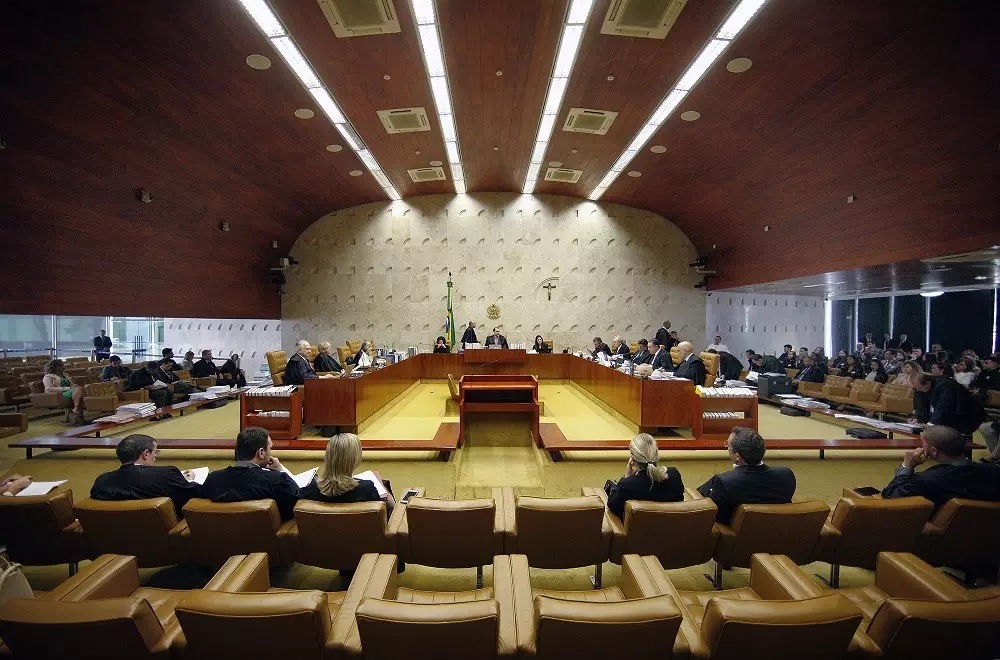RIO DE JANEIRO, BRAZIL – In an online plenary session yesterday afternoon and evening, Brazil’s Federal Supreme Court (STF) reiterated the power of governors and mayors to determine restrictive measures during the coronavirus pandemic. The ruling also establishes that states and municipalities may determine which activities will be suspended, and which services will not be interrupted.

The decision voids Jair Bolsonaro’s attempted power play to define which activities would not be affected by the isolation measures.
In the process, the AGU (Federal Solicitor General) argued that the measures of governors and mayors could not affect services deemed essential by the federal government. But this argument was unanimously rejected by the Supreme Court justices, who reiterated that states and municipalities have the power to determine which services are affected by measures decreed by local governments.
The judgment analyzed the Provisional Measure issued by President Bolsonaro, which focused on the federal government’s power to decide on the following measures:
- isolation
- quarantine
- road, port, and airport restrictions
- prohibition of essential activities and services
The PDT (Democratic Labor Party), the plaintiff, claimed that the federal government had restricted the power of governors and mayors to take action against the epidemic, by issuing a Provisional Measure that focused all powers in the federal government and allowed the Presidency to define which activities are deemed essential and cannot be suspended.
Unanimously, the nine justices sitting in the session argued for the possibility of states and municipalities to enact measures of local interest. Justices Marco Aurélio Mello, rapporteur for the case, Alexandre de Moraes, Edson Fachin, Rosa Weber, Luiz Fux, Cármen Lúcia, Ricardo Lewandowski, Gilmar Mendes and Dias Toffoli, president of the court, voted in favor.
Justice Luís Roberto Barroso recused himself from the case for personal reasons. Justice Celso de Mello, absent for health reasons, also failed to take part in yesterday’s session.
A majority of the justices argued that the federal government can only classify as “essential” activities, those of national nature, and that governors and mayors may determine the essential activities that cannot be restricted within their states and municipalities.
Justices Alexandre de Moraes, Edson Fachin, Rosa Weber, Luiz Fux, Cármen Lúcia, Ricardo Lewandowski and Gilmar Mendes voted accordingly.
In arguing for this point in his vote, Moraes mentioned the declared intention of President Jair Bolsonaro to issue a decree ordering the reopening of all commerce. According to the justice, mayors and governors have the power to determine which activities should be suspended in the fight against the epidemic.
The decision, however, upheld the federal government’s capacity to legislate on isolation measures.
The justices stated that, according to the Federal Constitution, the power to determine measures in the area of health is divided between federal government, states and municipalities.
In practice, this means that at points of national interest, such as roads that cut through more than one state or the operation of international airports, the federal power tends to prevail, while measures of local impact would fall on states and municipalities.
In his vote, Alexandre de Moraes said that any excesses should be discussed on a case-by-case basis by the judiciary.
Justice Rosa Weber said that the ability of the federal government to determine essential activities during the pandemic is contrary to the principle of the separation of powers.
“The President has delegated powers to himself, failing to circumscribe forms of control,” said Weber. In her vote, she reiterated that the “possibility of governors and mayors, also by decree and within their respective powers, to regulate whether or not A or B are essential activities” must be respected.
On March 24th, Justice Marco Aurélio had rejected the PDT’s petition to suspend the effectiveness of the Provisional Measure by means of an individual decision, but reiterated in his ruling that governors and mayors may adopt measures to fight the pandemic within the scope of two powers. Yesterday, the justices reviewed the issue again, this time by the STF plenary.
Understanding the Provisional Measure
Provisional Measure 926, issued by President Bolsonaro, provides that the federal government may rule, by decree, which “public services and essential activities” cannot be affected by local government measures.
Another point in the measure requires that regulatory bodies be heard before measures affecting the respective economic sectors are decreed.
Subsequently, Bolsonaro used the powers granted to him by the Provisional Measure to issue a decree detailing the activities deemed essential – including, for instance, lottery agents and religious activities on the list of these services.
The measure was eventually suspended by a ruling by the Rio de Janeiro Federal District Court, but was later upheld by the 2nd Region Federal Appeals Court when deciding on the government’s appeal.
First virtual session
Yesterday’s session is the first in STF history to be held by videoconference for cases by the Court’s plenary session, made up of all 11 justices.
Justices attended the session from their homes or offices. Only the Presiding Justice, Dias Toffoli, and Justice Gilmar Mendes were present at the court’s session.
On Tuesday, the STF 1st and 2nd Panels, each comprising five Justices, which hear cases that do not require a plenary session, had already instituted virtual sessions. The presiding justice is not part of either panel.
Source: UOL

